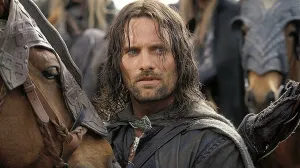The TV landscape can be brutal, and in this environment, some shows just don’t stand a chance. It doesn’t matter if they have a solid concept, interesting characters, or even a loyal fanbase. Nowadays, if the numbers don’t show up right away, the plug gets pulled, and examples range from The Society and The OA to Santa Clarita Diet, GLOW, and Sense8. And here, it’s no different: a project that managed to bring back the spirit of a cult ’80s classic, updated its concept for modern times, still couldn’t survive the rush of its network back then. After just two seasons, the Quantum Leap reboot was canceled, and it feels like it happened far too soon.
Videos by ComicBook.com
The official cancellation announcement came in 2024, right after the end of the second season. The reason? The same old story: low ratings versus production costs. It didn’t matter that the show had a strong, consistent script or ended the batch of episodes with some genuinely promising cliffhangers. What mattered was that, compared to other NBC shows, the reboot’s performance was much softer, and the network didn’t see it as strong enough to continue. It’s frustrating because this perfectly illustrates how traditional TV handles its bets: either you explode in ratings from the start, or nothing you build matters – you’re out.

But the Quantum Leap reboot wasn’t just a lazy remake. It updated the cult premise organically, keeping the DNA of the original series while introducing new questions and dilemmas. The story followed Ben Song (Raymond Lee), a physicist who joins the Quantum Leap project to study time travel, only to get trapped in a cycle of random jumps into the past, taking on the identities of different people in each episode. Like the original, his goal wasn’t just to get home, but to fix past mistakes and help people in critical moments of their lives. At the same time, the show played with a parallel storyline in the present, showing the team trying to track Ben and understand the implications of the project.
This more episodic format stayed true to the original, but with a modern twist: more serialization, deeper investment in long-term mysteries, and a bigger focus on the protagonist’s psychological impact. In practice, it balanced the original’s lighter tone with the kind of structure today’s audience expects. It was a gamble, and by the second season, that balance was finally starting to click. But did it have enough time to fully mature? Not even close.

Of course, not everything was perfect. The absence of Scott Bakula, the star of the original, was felt (and some fans criticized it). The chemistry between Ben and Addison (Caitlin Bassett), his guide in the present, also divided opinions, often compared to Sam (Bakula) and Al’s (Dean Stockwell) iconic partnership. But overall, these weren’t dealbreakers. Actually, they showed there was room to grow, adjust, and deepen the connections in future seasons. Pulling the plug before giving it a chance to develop was downright unfair.
Another factor that worked against it was NBC’s disastrous handling of the schedule. The reboot’s time slot shifted multiple times (apart from the impact of the WGA and SAG-AFTRA strikes in 2023), and promotion was lacking – there was no real push to sell the show as a must-watch weekly TV show (and we all know how deadly a lack of marketing can be for a high-potential project). The result? Ratings slowly dropped, and those numbers became the perfect excuse to end it. And let’s be honest, it’s always easier to blame the numbers than admit strategic failures in marketing and scheduling, right?
Still, the Quantum Leap reboot managed to find new life in the streaming era when Netflix saw its opportunity.
Netflix Steps In and Saves the Quantum Leap Reboot

The good news? It wasn’t the definitive end. In August this year, Netflix picked up the rights to both seasons, bringing all episodes to its catalog. No, that doesn’t mean the show’s been renewed, but it changes the game entirely. Why? Because we’ve seen plenty of canceled TV shows come back stronger once they find a larger streaming audience. Some of Netflix’s biggest successes came after abrupt network cancellations, like Lucifer, Manifest, Arrested Development, and Gilmore Girls. With Quantum Leap, the scenario is similar.
Netflix hasn’t announced a third season, but if the audience numbers hold up, it’s hard to believe the platform would pass up the chance to capitalize on a cult franchise with so much potential. And let’s not forget: the reboot left plenty of hooks for continuation. The end of the second season was designed to serve as both a conclusion and a springboard for new storylines. The groundwork is there, meaning nothing would need reinventing – just pick up where it left off. What’s missing now is the opportunity.
The reboot deserved more, not because it was flawless, but because it offered something many shows today simply don’t: a blend of nostalgia and novelty that resonates across generations. Canceling it after two seasons was pragmatic, but creatively short-sighted. Had Quantum Leap been allowed to continue, it could’ve become one of the most well-crafted and consistent reboots of the decade. Now, all that’s left is to see if more viewers discover it and if Netflix works its magic.
Upset that the Quantum Leap reboot was canceled? Think it has a shot at continuing on Netflix now? Tell us what you think in the comments!









